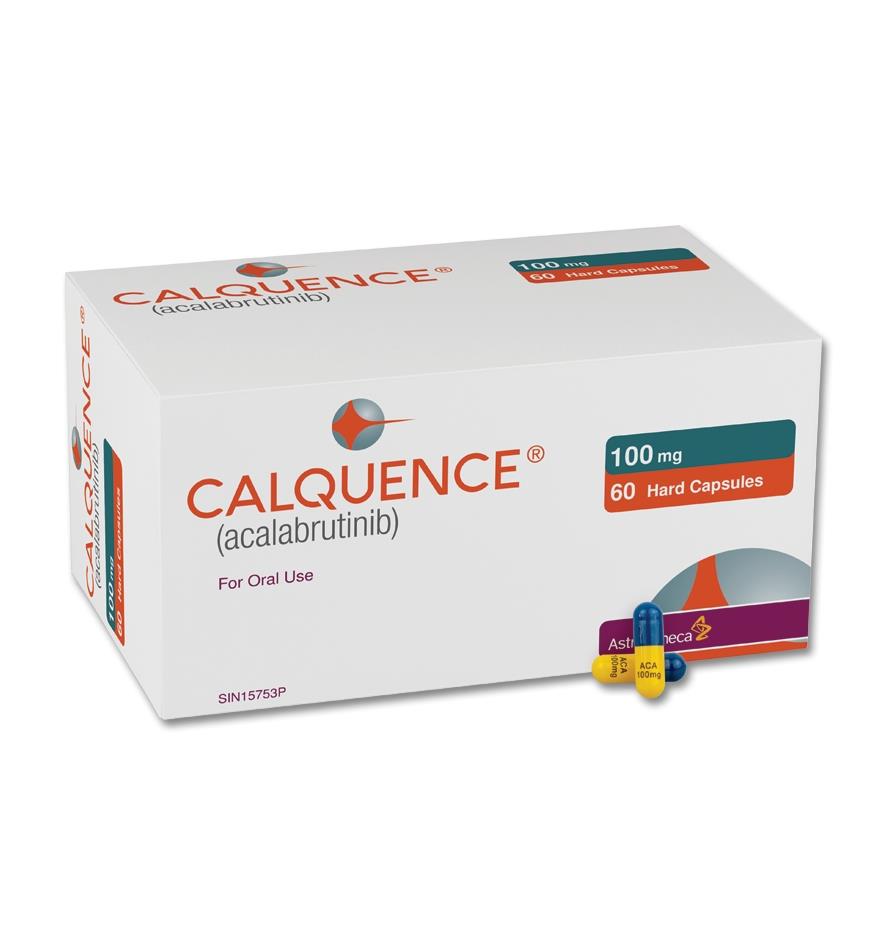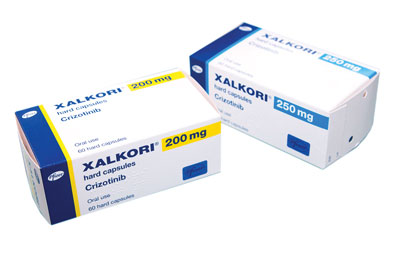Calquence (acalabrutinib) vs Xalkori (crizotinib)
Calquence (acalabrutinib) vs Xalkori (crizotinib)
Calquence (acalabrutinib) and Xalkori (crizotinib) are targeted therapies but they are used to treat different types of cancer: Calquence is a Bruton's tyrosine kinase (BTK) inhibitor indicated for the treatment of certain types of B-cell malignancies, such as chronic lymphocytic leukemia (CLL), while Xalkori is an ALK and ROS1 inhibitor, primarily used for non-small cell lung cancer (NSCLC) with specific genetic alterations. The choice between these medications would depend on the patient's specific type of cancer and its genetic markers, as Calquence is not indicated for NSCLC and Xalkori is not used for CLL. It is crucial for a patient to discuss with their oncologist to determine the most appropriate treatment based on their cancer's characteristics and any potential genetic mutations.
Difference between Calquence and Xalkori
| Metric | Calquence (acalabrutinib) | Xalkori (crizotinib) |
|---|---|---|
| Generic name | Acalabrutinib | Crizotinib |
| Indications | Treatment of mantle cell lymphoma, chronic lymphocytic leukemia, and small lymphocytic lymphoma | Treatment of non-small cell lung cancer, ROS1-positive, and ALK-positive metastatic NSCLC |
| Mechanism of action | Bruton's tyrosine kinase (BTK) inhibitor | Anaplastic lymphoma kinase (ALK) and c-Met/hepatocyte growth factor receptor (HGFR) inhibitor |
| Brand names | Calquence | Xalkori |
| Administrative route | Oral | Oral |
| Side effects | Headache, diarrhea, muscle pain, anemia, infection, bruising | Visual disorders, gastrointestinal effects, edema, elevated transaminases, fatigue, decreased appetite |
| Contraindications | Hypersensitivity to acalabrutinib or its excipients | Hypersensitivity to crizotinib or any component of the formulation |
| Drug class | BTK inhibitor | ALK and MET inhibitor |
| Manufacturer | AstraZeneca | Pfizer |
Efficacy
Efficacy of Calquence (Acalabrutinib) in Lymphoma
Calquence (acalabrutinib) is a medication specifically designed as a Bruton's tyrosine kinase (BTK) inhibitor. It is primarily used in the treatment of certain types of lymphoma, including mantle cell lymphoma (MCL) in adults who have received at least one prior therapy. The efficacy of Calquence in treating MCL was demonstrated in clinical trials where it showed a high response rate in patients. It works by inhibiting the action of BTK, which is a key signaling molecule in the B-cell receptor pathway involved in the survival and proliferation of malignant B cells. By blocking BTK, acalabrutinib can help to stop the growth of cancer cells.
While Calquence is not currently approved for all types of lymphoma, ongoing research and clinical trials are investigating its efficacy and safety in other B-cell malignancies. For instance, its potential use in treating chronic lymphocytic leukemia (CLL) and small lymphocytic lymphoma (SLL) is being explored, with some promising results. However, it is important to note that the use of Calquence for lymphomas other than MCL is considered off-label, and the efficacy in those cases has not been established by regulatory authorities.
Efficacy of Xalkori (Crizotinib) in Lymphoma
Xalkori (crizotinib) is an anaplastic lymphoma kinase (ALK) inhibitor that is primarily used in the treatment of non-small cell lung cancer (NSCLC) with ALK or ROS1 genetic alterations. Its efficacy in lymphoma is more specific and not as broadly established as in NSCLC. In the context of lymphoma, crizotinib has been studied in patients with ALK-positive anaplastic large cell lymphoma (ALCL), which is a rare type of non-Hodgkin lymphoma. In these cases, crizotinib has shown some efficacy due to its ability to inhibit the activity of the ALK protein, which can drive the growth of cancer cells in ALK-positive ALCL.
However, the use of Xalkori in lymphoma is considered off-label, and its efficacy for this purpose has not been approved by regulatory agencies. Clinical trials and case reports have provided some evidence of its potential benefit, but larger, more comprehensive studies are needed to fully establish its role in the treatment of lymphoma. It is essential for healthcare providers to weigh the benefits and risks of using Xalkori for lymphoma on a case-by-case basis and to consider it only when other more established treatment options are not suitable.
Regulatory Agency Approvals
Calquence
-
European Medical Agency (EMA), European Union

-
Food and Drug Administration (FDA), USA

-
Health Canada

-
Pharmaceuticals and Medical Devices Agency (PMDA), Japan

-
Therapeutic Goods Administration (TGA), Australia

Xalkori
-
European Medical Agency (EMA), European Union

-
Food and Drug Administration (FDA), USA

-
Health Canada

-
Pharmaceuticals and Medical Devices Agency (PMDA), Japan

-
Therapeutic Goods Administration (TGA), Australia

Access Calquence or Xalkori today
If Calquence or Xalkori are not approved or available in your country (e.g. due to supply issues), you can access them via Everyone.org.
How it works

Make an enquiry
Choose the medicine you want to buy, answer a couple of questions, and upload your prescription to speed things up. We’ll get back to you within 24 hours.


Make an enquiry
Choose the medicine you want to buy, answer a couple of questions, and upload your prescription to speed things up. We’ll get back to you within 24 hours.


Breeze through the paperwork
We'll guide you through the required documents for importing unapproved medicine, ensuring you have all the necessary information.


Get a personalized quote
We’ll prepare a quote for you, including medicine costs and any shipping, administrative, or import fees that may apply.


Receive your medicine
Accept the quote and we’ll handle the rest - sourcing and safely delivering your medicine.

Some text on this page has been automatically generated. Speak to your physician before you start a new treatment or medication.
Let's talk
If you have any questions, call us or send us a message through WhatsApp or email:
Contact us




